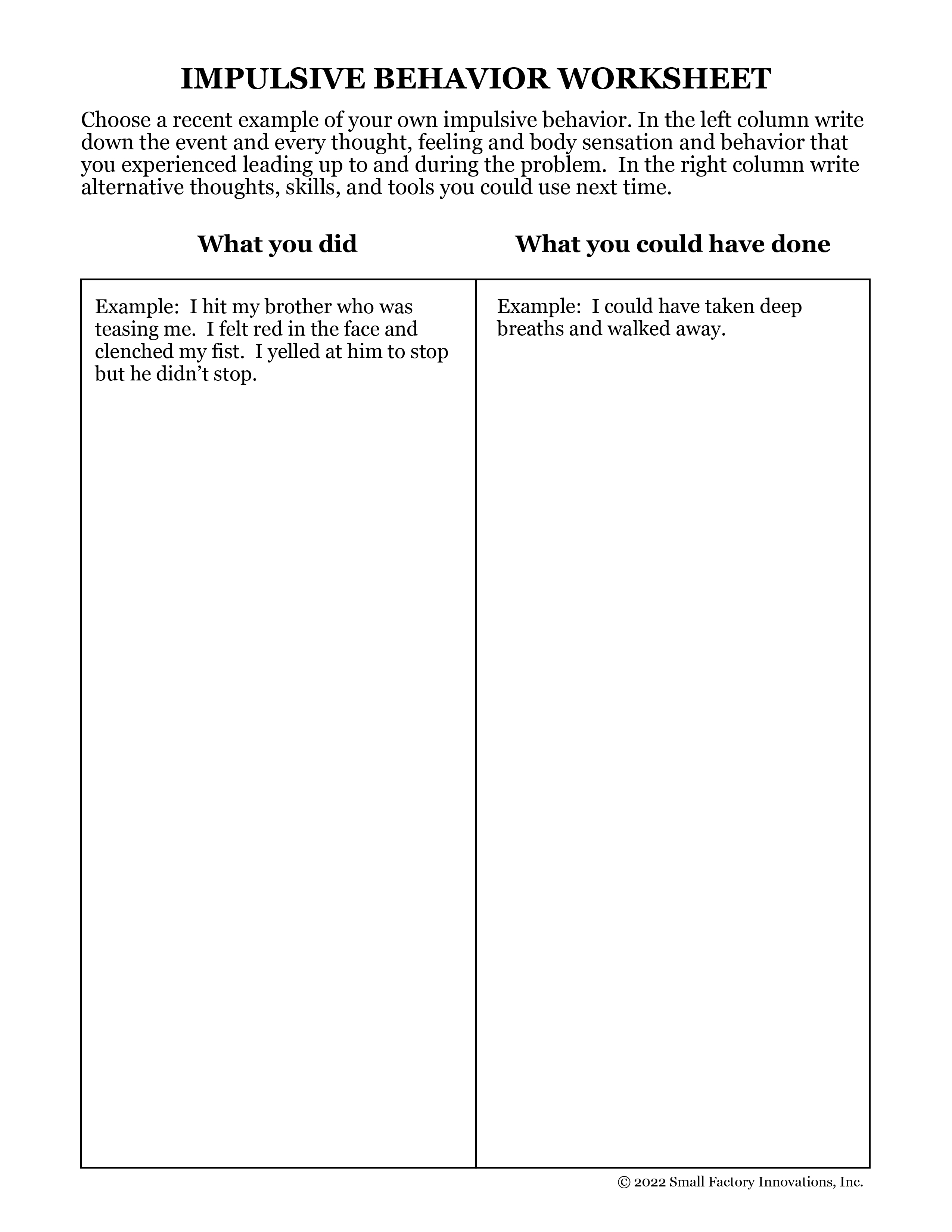
Improve life outcomes
Jumpstart: Controlling Impulses - Universal
Foundational
CASEL Competency Focus: Self Management
Time: 20-30 minutes
Materials: For The Birds-Think Before You Act, Writing Utensils, Worksheet
Objectives:
1. Identify situations that can cause an impulsive response.
2. Identify coping mechanisms that can be used rather than responding impulsively to words or actions.
3. Identify the outcomes after responding impulsively.
Speaking and Listening
Language Writing
Definitions of Key Terms:
- Impulse: A strong desire to do or say something.
- Impulsivity: Acting or tending to act suddenly and without careful thought.
Lesson Procedures
Introduction: Begin by watching the video For The Birds-Think Before You Act. Hand out the worksheet that has the following questions:
- What happened to the birds?
- What caused the birds to fly off of the wire?
- What did the birds forget to think about before they knocked the larger bird off of the wire?
- What could they have done differently so that they didn’t go flying?
Have the students write answers to the questions and then share their answers as a group.
Write the words ‘impulse” and ‘impulsivity’ on the board and ask the students what it means, allowing time for discussion. Write the definitions on the board. Ask what type of behaviors might be related to impulsivity? Have you seen anyone react impulsively? Have you reacted impulsively? What about slamming doors? Do you stomp and holler when you’re told to do chores? That is all impulsive behavior.
Game Time:
Jenga is a great game to illustrate and practice controlling impulses, concentration, and making choices. Below are some questions to ask while playing Jenga to help the student make real-life connections:
- How do you make a good choice about which block to pull?
- What would happen if you pull a block without thinking first?
- You have to think ahead about what will happen when playing Jenga.
- How do you think ahead when making a choice in class?
- What happens in class when you don't think first before making a choice?
- How do you make choices in class?
Jenga is also a great time to reinforce any positive skills you notice, such as... I noticed you really took your time deciding which block to pull. Good job! You are really thinking about what will happen if you pull that block. I like the way you think about each option before choosing which block to pull.
Application:
In pairs or small groups, write a script about different situations where someone would react impulsively and have the student’s role play asking students to Stop, Think, and Act to the circumstances rather than responding impulsively.
- Elementary Example
- Someone steps on your foot unintentionally. Losing in a game. Your sibling breaks your belongings. Losing your lunch or lunch money.
- Secondary Example
- A friend talks badly behind your back. Dropping your cell phone in the water. Getting in trouble for something that you did not do.
Try it out!
Party! Choose a special reward for the class or group. Pizza, candy, popcorn… whatever you think would be easy yet rewarding. As the students file into the classroom make sure they are able to see and/or smell the reward. Tell the students that you will not be serving the reward until after an unrelated lesson. After the lesson ask the class if it was hard to control their impulses. Were they able to concentrate on the lesson? Enjoy!
